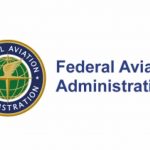FlightSafety’s LiveLearning Offering Eases Pandemic Effects
IFA Comment: IFA recognises that the COVID-19 pandemic has accelerate the need use on-line learning in aviation. Travel restrictions and quarantine mean that face to face teaching is not always possible. Whilst IFA believes that hands on practical training will always be needed at the same time new e-training systems are ever improving.
by Gregory Polek – October 1, 2020 AINonline
While the effects of the Covid-19 crisis have touched virtually every aspect of the aviation industry, the pandemic’s resulting limitations on classroom instruction could have hit companies such as FlightSafety International particularly hard. But as schools around the world see mixed results in their efforts to balance education needs with health imperatives, FlightSafety characterizes its remote LiveLearning program as broadly successful, delivering 1,750 pilot courses and 1,095 mechanics courses since its introduction in March.
LiveLearning differs from the company’s well-established eLearning offerings in that it replicates the classroom environment with a live instructor. Most recently, the company has expanded its LiveLearning offerings to include EASA-approved courses taught from its facilities in Paris and Farnborough, UK.
FlightSafety senior v-p of operations Brian Moore told AIN that, particularly for recurrent training, the program has “boomed” since its launch in March, both among pilots and mechanics. V-p of sales and marketing Steve Gross explained that the company did something similar for ancillary courses such as RVSM and MMEL training for three or four years before the pandemic.
“We took that technology and broadened it to do a two- or three-day recurrent,” said Gross. “We’ve done the rare initial [training] this way too, but we really want to keep it to recurrent. We think that it’s best if you’re doing an initial to do it at the facility.”
Gross added that the demand for the training has come from across the fleet, notably the Dassault Falcon 900, 2000, and 7X; Gulfstream G280 and G650; and Cessna Citation Sovereign. “It’s a really interesting mix, the take-up of it,” said Gross. “The quality of the instruction has not suffered. We still use our technology from the classroom and present it online. You can ask a question in general so the whole class can hear, or what they’ve done is set up a private chat for the attendees.”
For those who prefer to remain in the classroom, FlightSafety must follow all mandated health and cleaning protocols, and the company has gained FAA relief from requirements that students don oxygen masks as part of their training.




